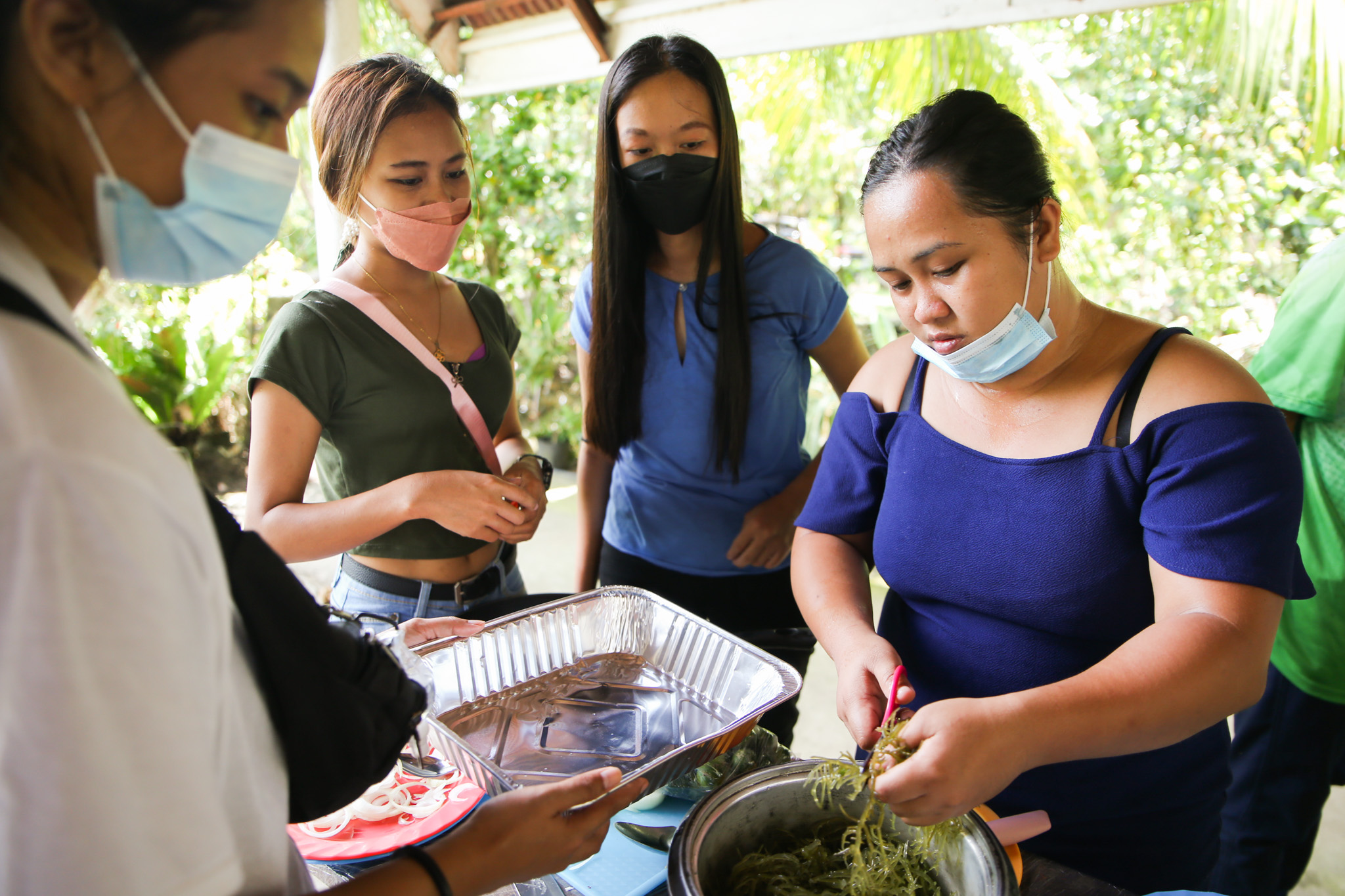



In July 2021, the City Council of Dumaguete (Negros Oriental, Philippines) approved a motion that would pave the way for the construction of a 174-hectare reclamation project. Various groups—scientists, environmentalists, fisherfolk, several youth and progressive groups—decried the railroading of the proposed project and the irreversible damages that such a venture would cause. To date, locals continue to hold silent protests every Friday calling on Dumaguete’s officials to completely scrap the destructive project and prioritize more inclusive and sustainable projects that enhance rather than diminish the lives of coastal communities.
At the crux of this issue are the coastal communities, whose lives are inextricably tied to the sea. As an archipelagic nation, fishing is one of the country’s most important industries; yet our fisherfolk continue to be among the most vulnerable, and their livelihoods among the most precarious. In this struggle, the women of the households have always been the unsung heroes. In several coastal communities, women fulfill different crucial roles necessary in fisheries—from participating in fishing and gleaning themselves, mending nets, marketing and processing the catch, to stretching the household budget to ensure there’s food on the table. They are decision makers, finance officers, and the talented and resourceful cooks of their homes.
Despite women’s significant labor and economic contributions, seldom are their stories told, and they are rarely seen as main stakeholders. Lutong Baybay (Seaside Recipes) was born out of the desire to put at the forefront the stories of women in these fishing communities. This protest zine is the fruit of a series of community visits and dialogues over shared meals. A collaborative effort of various groups and individuals, Lutong Baybay, through recipes and food stories, sheds light on the generational struggle of fisherfolk and the threats they face in the continued commercialization of our seas.
“This book of recipes from our baybay reminds us of the importance of protecting the livelihood of fisherfolks and beckons us to the bigger cause; to protect the city and its neighboring marine communities and protected areas,” said Merci Ferrer, a mother, teacher, and Zero Waste practitioner.
Alisandra Abadia, a human rights activist and JASS Southeast Asia’s program associate, said this in the book’s introduction: “Ito’ng cookbook ay representasyon ng pagkakaisa ng mga Dumagueteño sa kanilang panawagan na protektahan ang kanilang kabuhayan at kalikasan. Ang mga nagbahagi ng mga kwento nila ay tulad rin sa atin, na gusto lamang mabuhay nang mapayapa, at masuportahan nila ang kanilang mga pamilya at komunidad. Hindi krimen ang manawagan para sa hustisya, at lalong hindi krimen ang laban para mabuhay na may dignidad.” (This cookbook represents the solidarity of Dumagueteños in their call to protect their livelihood and nature. The ones who shared their stories here are just like us, who only want to live in peace, and be able to support their families and communities. It’s not a crime to demand justice; it’s most definitely not a crime to fight for a dignified way of living.)
In the zine, you will read stories of mothers who come from a long line of fisherfolks, and have extensive local and traditional environmental knowledge. You will learn about how women, children, and men participate in subsistence gleaning on reef flats, thus providing daily protein needs and supplemental income for their households. You will also learn about how the hardworking fisherfolk have been the stewards of coastal resources, and are the ones who continually monitor and notice ecological changes in their seaside environments.
The recipes found in the zine are also written down with the budget per serving specifications, and most make use of pantry staples. With the creation of Lutong Baybay, the organizers hope that various sectors will continue to support the fisherfolks in their call to protect the very source of their daily sustenance and livelihood, and amplify the urgent call to scrap the 174-hectare reclamation project. Moreover, the zine will hopefully be just one of the many steps we take in recognizing the contributions and needs of coastal communities, and ultimately empowering women who engage in small-scale fisheries.